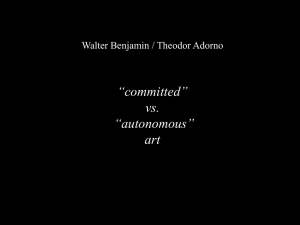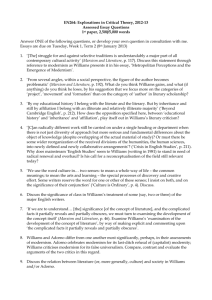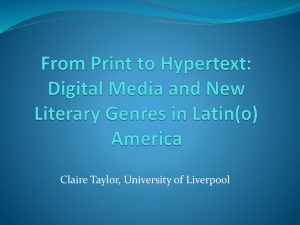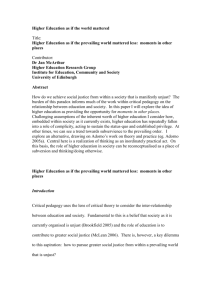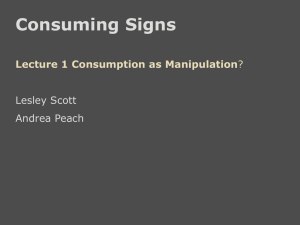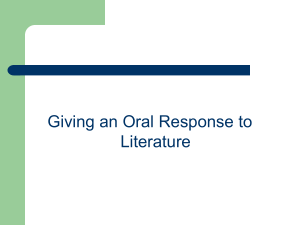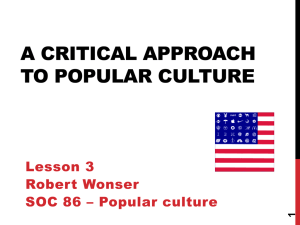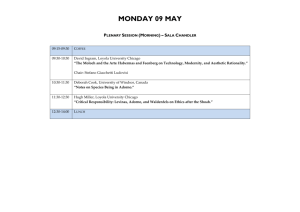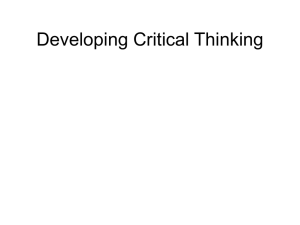Adorno and International Political Thought
advertisement
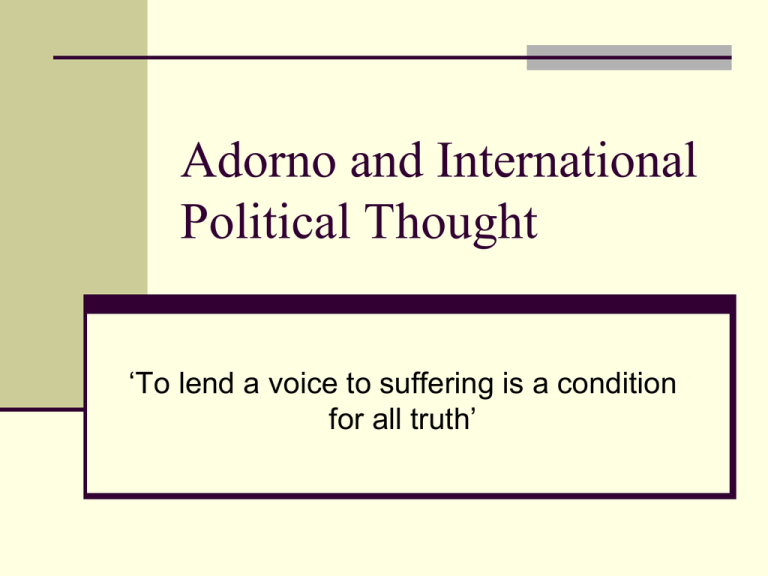
Adorno and International Political Thought ‘To lend a voice to suffering is a condition for all truth’ Overview Mainstream international ethics – attempt to ‘fix’ global problems Ethical reflection prompted by global suffering, but this suffering often forgotten in the generalised, rational response Critical alternatives Poststructural international political thought (IPT) Frankfurt School critical theory (Adorno) Immanent critique Hope Trauma and poststructural IPT Powerful critique of marginalisation of emotion in mainstream international ethics We should refuse the forgetting of trauma Jenny Edkins (Aberystwyth) States – silence those who have suffered to allow ‘politics as usual’ to continue Edkins: we must ‘encircle again and again the site’ of the trauma – resist depoliticisation Trauma time: ‘we cannot remember [trauma] as something that took place in time, because this would neutralise it’ Trauma and poststructural IPT Problem with Edkins’ approach Placing trauma time outside linear historical time discourages a working through of traumatic events that would attend to their situation in time and place How can we make links to those historical/structural conditions that facilitated the traumatic losses? Adorno and suffering Theodor W. Adorno (1903-1969) Immanent critique: enlightening Enlightenment the Enlightenment project has been usurped by an obsession with universality and instrumental rationality; ‘progress’ has brought new means of enslavement rather than the promised liberation Negative dialectics: preserve the non-identical (that which can’t be subsumed under universal concepts – e.g., emotion, particular human experience) Adorno and suffering Immanent critique Resist forgetting Need fora for telling the truth about the past, for reflection on particular suffering, for self critique – this can bring ‘a healing awareness’ Abhors detachment with which atrocities of the Holocaust were discussed a decade later ‘All of us today also recognise a readiness to deny or belittle what happened—however difficult it is to conceive that people are not ashamed to argue that it was surely at most only five million Jews, and not six million, who were killed…’ (Adorno, ‘What Does Coming to Terms with the Past Mean?’) Adorno and suffering Immanent critique Reflect on antecedents of suffering Search for some sort of truth E.g., What objective social conditions facilitated the turn to fascism in Germany? Economic insecurity, need to conform to status quo, stifling culture industry, dissonance between promise and reality of democracy NB Adorno’s immanent critique is a negative exercise – no positive prescriptions for change Education towards critical self-reflection Adorno and suffering Hope Important counterbalance to immanent critique Again, a negative move – preserving hope in the face of bleakness, inspiring continued social criticism and praxis Where does he find hope? ‘Fugitive ethical events’ (Jay Bernstein) – experience of happiness or love Art – express that which is beyond words, facilitate working through suffering, preserve hope Conclusion The situation of traumatic experience outside historical time hinders critique and prevents working through Adorno highlights the relation between the particular and the universal in social critique Although he doesn’t prescribe ‘solutions’, he gestures towards a different way of being in the world, an approach that: ‘discerns and experiences the good, the true, and the beautiful through their deformations—as the negation of the latter and as real in this negation. It pursues freedom and happiness in a repressive and oppressive society without ideologically denying this repression and oppression. It pursues the life of a critical intellect…’ (Weber Nicholsen and Shapiro)

